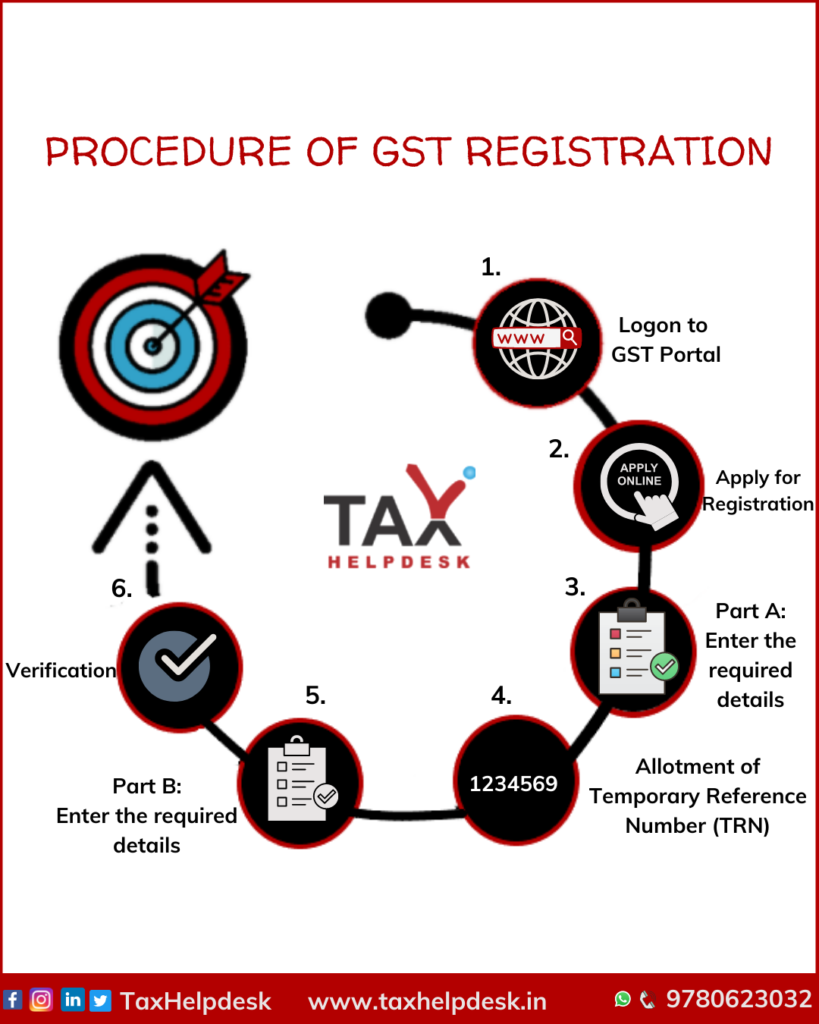Contrast and Select the very best GST Registration Services in Singapore for Your Requirements
Contrast and Select the very best GST Registration Services in Singapore for Your Requirements
Blog Article
From Beginning To End: The Ultimate Roadmap to GST Registration for Services Looking For Financial Security
Browsing the complexities of Item and Provider Tax (GST) enrollment is a critical step for businesses pursuing financial stability. From recognizing the essential concepts of GST to following post-registration guidelines, the procedure can appear intimidating in the beginning look. However, breaking down the roadmap right into convenient steps can streamline the enrollment journey for companies looking to boost their monetary standing. Allow's check out the vital components that comprise this best roadmap and uncover how each phase contributes to laying a strong foundation for monetary success.
Comprehending GST Essentials
Digging right into the basic concepts of Goods and Provider Tax Obligation (GST) is important for gaining a comprehensive understanding of its effects on businesses and the economic climate. Input Tax Obligation Credit Score (ITC) is a significant feature of GST, enabling services to assert credit scores for taxes paid on inputs, lowering the overall tax problem. Recognizing the basics of GST is important for organizations to abide with tax guidelines, handle their finances efficiently, and contribute to the nation's economic development by participating in a transparent tax system.
Eligibility Criteria for Registration
To register for GST, companies should satisfy particular eligibility requirements established by the government. The primary eligibility requirement is that any business involved in the supply of goods or services with an annual aggregate turnover above the threshold limit established by the authorities must sign up for GST. Since the existing guidelines, the threshold restriction for GST enrollment is an annual aggregate turn over of 40 lakhs for services running within a state, except for unique group states where the limit is 20 lakhs. Furthermore, specific organizations are called for to register for GST regardless of their turnover, such as interstate providers, casual taxable individuals, and services reliant pay tax under the reverse cost system. It is important for companies to extensively examine their turnover and purchase types to determine their GST enrollment obligations properly. Failure to register for GST when eligible can bring about charges and lawful consequences, making it crucial for services to stick to the defined eligibility standards.
Files Required for Enrollment
Having actually met the qualification standards for GST registration, businesses have to now guarantee they have the requisite papers in place to continue with the enrollment procedure efficiently. The records required for GST registration commonly consist of proof of service constitution, such as partnership act, registration certification, or consolidation certificate for various types of organizations. Furthermore, businesses require to offer documents establishing the principal location of company, such as a rental agreement or electrical power bill.
Step-by-Step Registration Process
Beginning the GST registration process includes a series of structured actions to make sure a certified and smooth enrollment for companies. The first action is to go to the GST website and submit the enrollment kind with precise information of business entity. Following this, the candidate gets a Temporary Reference Number (TRN) which is made use of to resume the application procedure if it's not finished in one go.
Next, all called for documents as per the checklist supplied by the GST portal demand to be uploaded. These files typically include evidence of business identification, registration and address evidence of marketers, economic declarations, and business entity's PAN card.

Post-Registration Conformity Standards

Final Thought
In verdict, organizations seeking monetary stability should comprehend the essentials of GST, fulfill eligibility criteria, gather necessary records, adhere to the detailed registration process, and conform with post-registration guidelines - Best GST registration services in Singapore. By adhering to these actions, organizations can make certain conformity with tax obligation laws and keep economic stability in the long run
Additionally, particular organizations are required to sign up for GST regardless of their turnover, such as interstate distributors, informal taxable individuals, and organizations accountable to pay tax obligation under the reverse fee mechanism.Having met the qualification check this requirements for GST enrollment, services should currently ensure they have the requisite documents in location to proceed with the enrollment process successfully. The papers required for GST enrollment normally include evidence of company constitution, such as partnership act, registration certification, or incorporation certification for different kinds of businesses. In addition, companies require to offer records establishing the primary place of service, such as a rental agreement or power bill.Starting the GST registration process look at more info entails a series of structured steps to make certain a seamless and certified registration for organizations.
Report this page